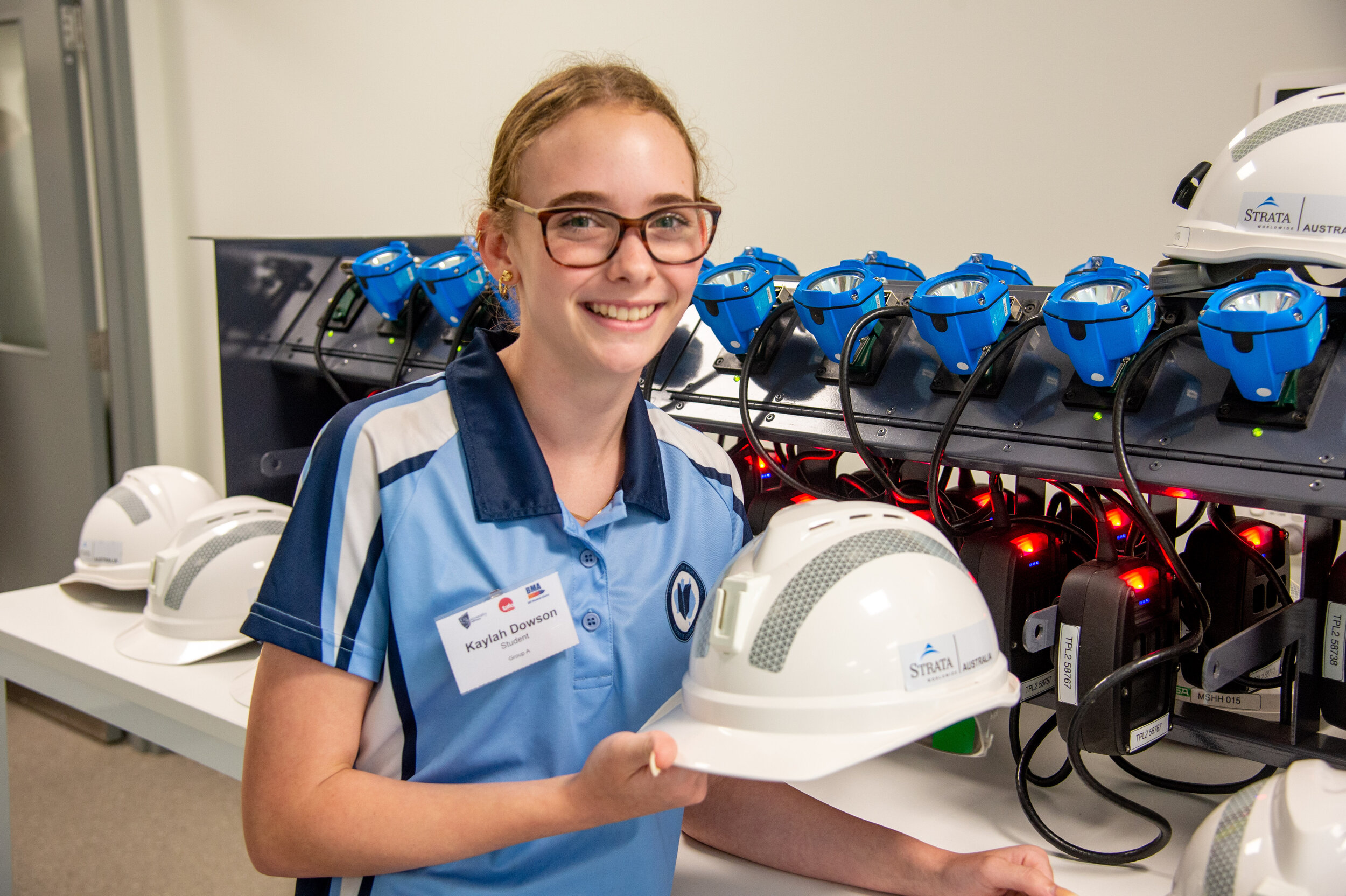
Isaac students become autonomous training pioneers
More than 100 Isaac region year 10 students will lead the way as the first ever cohort of students to
participate in a new training pathway for Queensland when they start specialised training in new, digital, and autonomous technologies.
Led by BHP Mitsubishi Alliance (BMA) and supported by CQUniversity Australia and TAFE Queensland as education partners, the training is part of a pilot program designed by the Queensland Future Skills Partnership to prepare Queenslanders for the new skills required by industry.
Launched in August 2019, the partnership defines the first wave of new skills that are required to support automation and technology advances in the Queensland resources sector.
BHP Mitsubishi Alliance (BMA) Head of Human Resources, and Chair of the Queensland Future Skills Partnership Steering Committee, Tamara Barden said the pilot will prepare students for the latest technology and highlight the new mining careers available.
“The pilot will help create new employment pathways for school students over the coming years,” Ms Barden said.
“It is important to ensure the industry has a skilled and job-ready workforce required to take advantage of new and emerging technology. This pilot will help build a future and resilient workforce from our backyard.”
Students from schools including Blackwater State High School, Clermont State High School, Dysart State High School, Middlemount Community School and Moranbah State High School will undertake training over the coming months and will not only receive credits towards their Senior Certificate and a nationally recognised qualification, but also gain high level skills and experience to prepare them for the jobs of the future.
Moranbah State High School students, Kaylah Dowson and Boyd Clothier, are two of the first ever school students in Queensland to participate in the pilot. Miss Dowson said she is excited to learn more about future career pathways in mining.
“Pretty much my whole family is in open-cut mining – parents, grandparents, uncles and aunts,” Miss Dowson said.
“I’ve grown up hearing about it, and now I get to learn about the new technology that they are seeing on the mine site as well”.
Mr Clothier said he is interested in learning about the new technology and how it can be applied within the industry.
“My dad is a diesel fitter, and he says I’m lucky to be able to learn about this at school,” Mr Clothier said.
“I can see that even if I don’t end up in mining, new technology is being adopted by lots of industries, so I will have a head start on other workers.”
“The micro-credentials are just the start of learning about automation. This is definitely something I want to pursue in the future,” Mr Clothier said.
Vice Chancellor of CQUniversity Australia Professor Nick Klomp said the pilot is an exciting new training opportunity for Queensland and will play an important role in ensuring the future sustainability of our state’s resources industry.
“Throughout the pilot students will learn how to work effectively and safely in autonomous environments and will gain valuable skills in digital transformation and new technologies,” Professor Klomp said.

“School-based students will develop the skills and knowledge required to gain employment and/or progress to higher-level training within mining and related fields of autonomous operations.”
TAFE Queensland Chief Executive Officer Mary Campbell said the pilot was designed in close consultation with industry to ensure students who participate learn the skills they need fulfil industry demand.
“New technology is being introduced into Australian workplaces every day, and we need to ensure the workforce has the ability to drive this innovation.
“The work of the Queensland Future Skills Partnership is crucial in ensuring Queensland has the skilled workers the resources industry needs for future growth and success,” Ms Campbell said.

